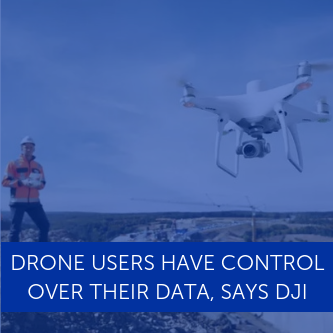
Updated on • 18 Aug 2024
Drone users have control over their data, says DJI
Key DJI officials speak out on important industry issues, including data security, drone safety and enhanced systems and procedures to deter rogue operators. ... Read More
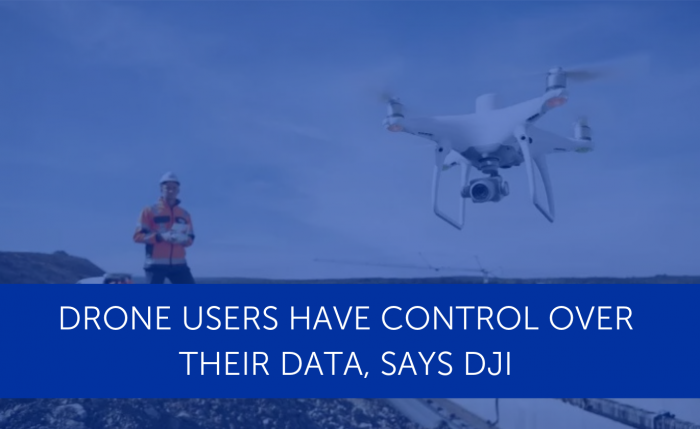
Key DJI officials have shared their thoughts on important industry issues, including data security, drone safety and enhanced procedures to deter rogue operators.
The topics were discussed during a wide-ranging interview at INTERPOL World 2019 - an international trade exhibition and conference staged in Singapore last week.
During the event, MBE Philip Ingram (PI) quizzed Adam Welsh (AW), DJI's Head of Asia Pacific Public Policy, and Romeo Durscher (RD), Director of Public Safety Integration for DJI.

From left: Philip Ingram MBE, Adam Welsh (AW), DJI's Head of Asia Pacific Public Policy, and Romeo Durscher, Director of Public Safety Integration for DJI.
One of the key takeaways from the fascinating interview was that operators flying DJI drones have complete control over their data.
The DJI duo also explained that the company is working on enhanced security features to make it harder for rogue users to hack drones.
This topic was particularly timely, coming in the wake of the BBC documentary entitled Britain's Next Air Disaster? Drones - which raised eyebrows in the UAV community and was criticised by DJI for being unbalanced, one-sided and part of the anti-drone smear campaign.
Below is the transcript, in full, of the INTERPOL World 2019 interview, with the speakers' names indicated by their initials.
DJI at INTERPOL World 2019 - The Interview
PI: "You are one of the leading Chinese manufactures on the globe with the products you produce. Certain governments in the world have put restrictions on or there are reported restrictions on DJI products in government applications. Can you comment on that?"
AW: "Yes there are some agencies that have sought more information about where data flows and there are also others who have put restrictions on purchases. But they have also put in place waiver programmes to enable the use of the product, even when those restrictions are in place, so our products are still being used by many of these agencies.
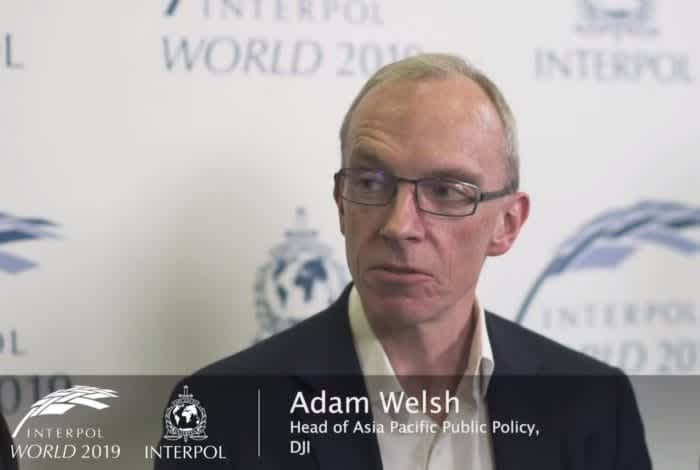
"If you think about it, effectively what they are looking at is an adoption of what is a consumer off-the-shelf product for the most part and want to make sure that the right protocols are in place for safe use and to ensure that there is no data leakage.
"If we really want to talk about where the data goes, effectively if you're operating outside of China and you opt in to share your data, it will all go to American servers. First you need to opt in to share your flight logs and you have to opt in to share any video, otherwise, we don't take any of it. But if you do opt-in, it all resides on servers in the US."
PI: "So if they are on US servers, that means that under the US Patriot Act, the US Government has complete access to it if you're a non-US citizen?"
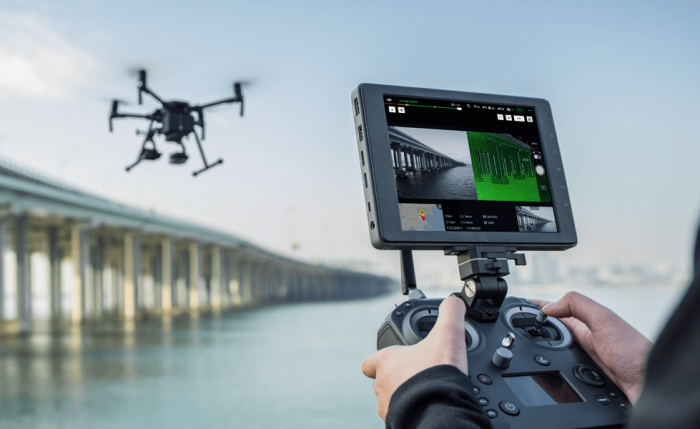
AW: "Effectively what we do is we give people the opportunity to not opt-in. If you don't want to share your data, you don't have to share the data with us.
"We also have Local Data Mode which means you won't be transmitting anything over the internet and we've had all of this verified through an audit system. We went to an outside audit firm. They looked at our source code. They brought the product off the shelf - we didn't give them the product - and they did a complete tear down to verify that the data is secure with the user."
Enhancing Drone Safety
PI: "Hacking a drone is one of the biggest concerns that there is in the security community. What are DJI doing to make sure your products have got that sort of cyber safety built in?"
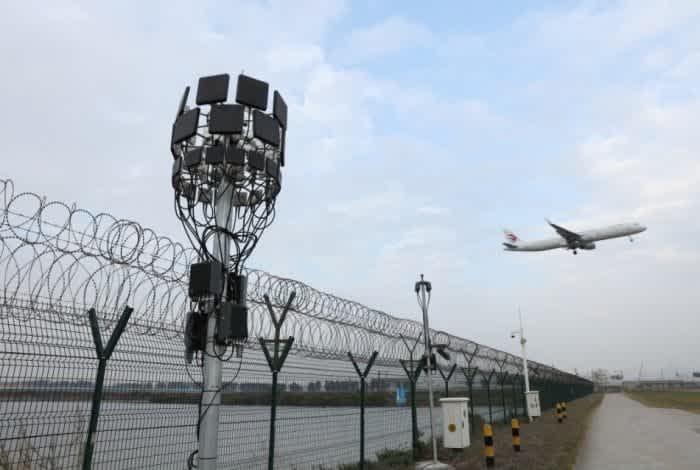
AW: "We upgraded our commander control link to the OcuSync protocol. This is propriety to us and has a higher level of encryption and on some of our enterprise-class drones we also have AS-256 encryption on board for both the video link and for the commander control link."
PI: "Drones in particular can be a force for the good or can be used for not so good purposes. How can we ensure people just use them for the good?"
RD: "As the leading manufacturer of consumer and commercial drones, we want to be engaged in these discussions. Ultimately the drone operator has the responsibility to fly according to the laws and regulations of where he or she is operating and that is our expectation, but we want to help with the education component and give first-time drone users the opportunity through our app to get a knowledge test done.
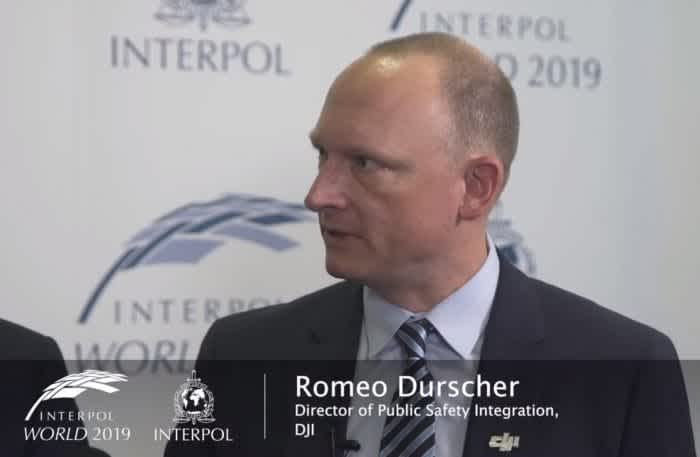
"We've already implemented that in the UK, Australia and the USA to help these first-time drone operators understand the local laws and regulations. Furthermore, we are enhancing the safety and security features of our platforms constantly and we'll soon be implementing additional alert features to alert drone operators when they start operating beyond the line of sight so that they understand that they are doing something that they are not supposed to be doing.
"We have active altitude limitations implemented so operators can't go above certain altitudes and we will continue to improve upon these features so our customers - hobbyists or commercial operators - know what they can or can't do through our technology."
Drones For Good
PI: "You've got a relationship with the European Emergency Number Association (EENA). Can you explain a little bit more about that and how important that is?"
RD: "We partnered with EENA - a non-governmental agency based in Brussels - to really bring new technologies into public safety to help enable these different public safety agencies with more technologies and make their jobs more safe, but ultimately help to keep the people more safe. We partnered with them over three years ago to better understand how our drones are helping public safety.
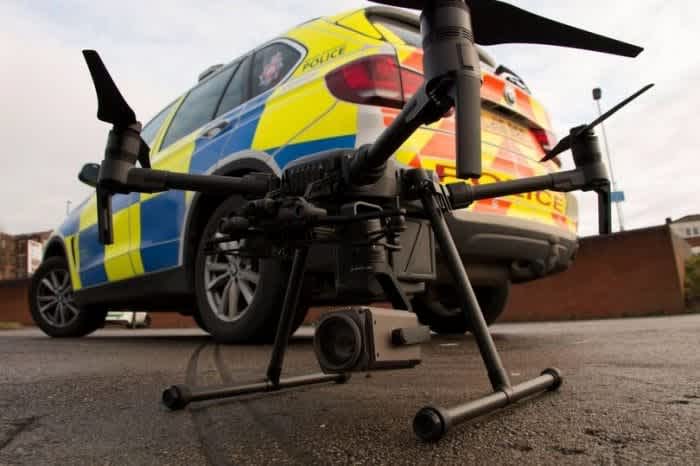
"Within the programme we built four pilot test sites in Europe and we have the ability to go into those test sites and test new technologies from hardware to software solutions, but then also actively as a consortium work on better legislative approaches to drones and the integration into airspace and also learn how these technologies really are impacting public safety.
"Recently we did a research study in regards to search and rescue and we wanted to compare how drones are helping search and rescue and compare it to the traditional method and those data points are extremely helpful to further the improvements of software and hardware solutions."
Remote Identification 'Is Key'
PI: "As you're furthering the improvements we are seeing countries recognising what they are seeing as a threat and bringing in greater regulations, but there seems to be a disparity between what is good regulations and what is oppressive regulation in different countries around the world. Is there a sort of gold standard? Is there something from a manufacturer's perspective that you would recommend that you think should be in and is a sensible regulation to apply?"
AW: "We put out a White Paper recently on elevating safety. It contains areas which we think need more attention, but most leading jurisdictions where the technology is being adopted have reasonable operational guidelines in place - things like don't fly within a certain distance of airports and don't fly overhead, those sort of operational guidelines that guarantee a modicum of safety.
"I think the next areas that we advocate for and would like to see more of are registration, so we have some sort of accountability built into the system, education, which is not overly burdensome, because we want compliance with the education system, so we want it to be easy and preferably no cost or low cost.
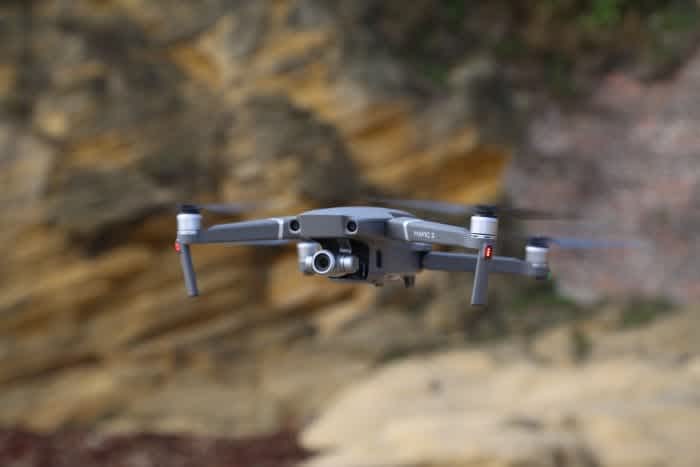
"And then I think the key part we would like to see happen even more is remote identification. So if you think about the ability of a registration system where you have a database of serial numbers identifying who owns that drone and then if you have a remote identification system you literally have the same sort of ability that a police officer has when they pull over a car on the side of the road.
"They can look at that remote ID, that serial number they are getting from the recovery station, and they know who should be operating that drone.
"They can also live track and see whether people are busting altitude limits or flying beyond visual line of sight and start to enforce the existing laws. We think this is a key component. "
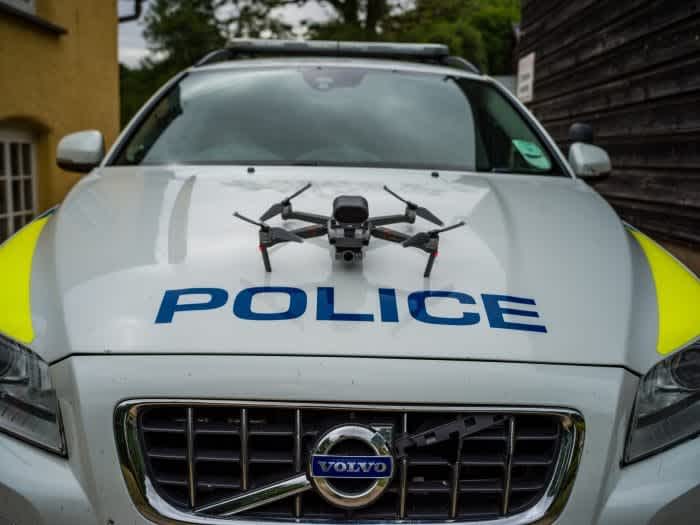
'We Have a Great Opportunity To Influence The Next Generation'
PI: "DJI are known for the drones, but you produce a number of other products that are out there on the market. Can you give us an oversight of the other things that they should be looking out for?"
RD: "DJI is not only an aerial company but we are also a camera system company. We stabilise gimbal systems for ground operations and hand-held operations and we have a variety of different products from the consumer side with the small little handheld camera that stabilised to mire professional set-ups that we are seeing in Hollywood being utilised.
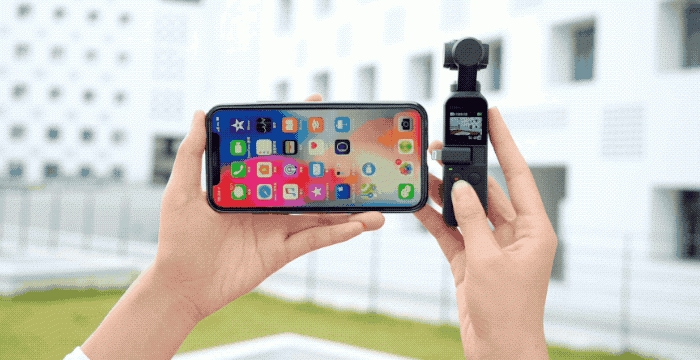
The hand-held DJI Osmo Pocket camera. Find out more by clicking here.
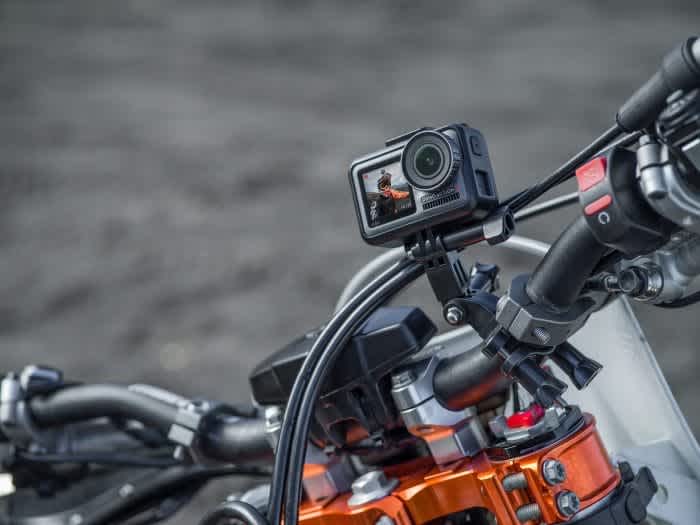
The DJI Osmo Action camera. Find out more by clicking here.
"Very recently we have also introduced RoboMaster, which is a small educational car that you build together and students can code.

RoboMaster S1. Click here for more information.
"All of these technologies are helping the next generation of engineers, scientists and explorers - to build upon and I am super excited about this. We have a great opportunity to influence our next generation and our technology is helping not only these students but the future workforce in doing their jobs more effective and safer."
Heliguy is one of DJI’s largest and trusted European enterprise channel partners and is recognised as a Gold Partner, certifying that we can provide expert knowledge and services to interested enterprise customers. To find out more about the DJI drones that we sell and the services we provide, contact us by phone or email.

written by
James Willoughby
James joined heliguy™ in 2018 following a 13-year stint in print and online journalism, having worked on regional and weekly newspaper titles. He is responsible for spearheading heliguy™'s content strategy and social media delivery. James collaborates with DJI Enterprise's European marketing team to coordinate and produce case studies and helps organise events and webinars.